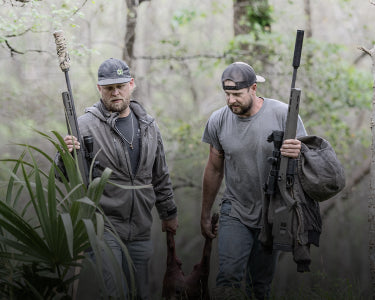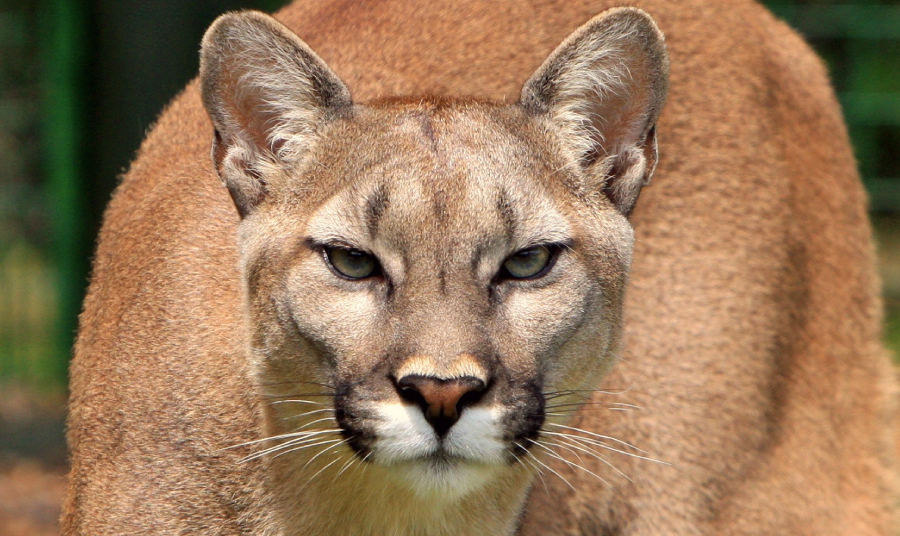(Photos by Jacky Rankin)
On September 1st, 2024, Texas banned canned mountain lion hunting—that is, the practice of capturing mountain lions and releasing them into an enclosed space to be hunted down—for the first time. Now, this recent ban may seem trivial—after all, canned mountain lion hunts were hardly ever a widespread practice. But make no mistake, this ban is just the beginning. Anti-hunting activists are using this small victory as a stepping stone to push for even more restrictive laws. If we don’t push back, Texas could soon find itself in the same position as Colorado, where a vocal group is pushing for an outright ban on mountain lion and bobcat hunting. The consequences of such measures could be disastrous—not just for hunters, but for the entire ecosystem, the state’s economy, and the people who rely on it.
How Hunters Help the Environment
This great country’s verdant forests and bountiful wildlife are only possible thanks to the North American Model of Wildlife Conservation, which has successfully preserved wildlife populations and biodiversity for centuries. This model is based on the principle that wildlife belongs to the people, and that regulated hunting can be used to manage both predator and prey populations. It’s a time-tested, science-driven approach that ensures both people and wildlife can thrive in a balanced ecosystem.
Hunters are the backbone of this conservation model. Through excise taxes on hunting, shooting, archery, and angling equipment, hunters have generated $25.5 billion since 1937 for wildlife conservation. This is managed through the Pittman-Robertson Act and the Dingell-Johnson Act. In 2022 alone, a record $1.5 billion was distributed to states for habitat restoration, land acquisition, and wildlife management projects. This funding also supports non-hunters by creating outdoor recreation opportunities for hikers, bikers, wildlife watchers, campers, and others.
Without hunters, there would be no reliable funding source for these crucial conservation efforts. That’s why it’s imperative to protect hunting rights—because hunting isn’t just about harvesting animals, it’s about preserving the environment.
Why We Hunt Mountain Lions
Mountain lions are apex predators, with no natural enemies aside from humans. However, in times of desperation, they have been known to hunt humans as well. Without regulated hunting, their populations can quickly grow out of control, leading to severe imbalances in local ecosystems. Mountain lions prey on herbivores like deer, which play a critical role in maintaining the health of vegetation and preventing overgrowth. When predator populations swell, herbivore numbers plummet, which in turn destabilizes the entire food chain.
Mountain lions are also a direct threat to the livestock industry wherever they are found. A single mountain lion can kill an entire herd of sheep or goats in a matter of days, leading to devastating losses for ranchers. If anti-hunting activists succeed in pushing through further legislation, ranchers will be left with few options for protecting their animals, short of calling in government culling programs—which are far less humane and efficient than regulated hunting.
The Real Cost of Banning Mountain Lion Hunting in Colorado
If Texas wants to avoid the pitfalls of unchecked anti-hunting legislation, it need only look at what’s happening in Colorado. A group called “Cats Aren’t Trophies” is currently pushing for a complete ban on mountain lion and bobcat hunting in the state, citing emotional appeals and misinformation. But the reality is that banning mountain lion hunting would have catastrophic consequences for Colorado’s wildlife, economy, and even its government agencies.
Colorado Parks and Wildlife (CPW) relies heavily on the revenue generated from hunting licenses to fund its conservation programs. For example, a mountain lion hunting license in Colorado costs $72.20 for residents and $513.90 for non-residents. From 2022 to 2023, CPW sold 2,114 resident licenses and 500 non-resident licenses, generating about $410,000 in revenue. If Proposition 127, the proposed hunting ban, were to pass, CPW would lose this revenue—a loss that would directly impact their ability to fund wildlife conservation programs.
In addition to the loss of license revenue, the ban would severely impact the state’s economy. Mountain lion and bobcat hunting contributes to a larger ecosystem of economic activity, including travel, lodging, and gear sales. In fact, estimates show that Proposition 127 would result in a $61.65 million decrease in economic output, with $6.28 million coming directly from lost mountain lion hunting and $55.37 million from its indirect impact on elk and deer hunting.
But that’s not all. By allowing mountain lion populations to grow unchecked, the ban would lead to an increase in predation on deer and elk, which are vital to Colorado’s hunting economy. This would further reduce CPW’s revenue from big game hunting, with losses estimated to range between $3.6 million and $5.8 million annually. And as Colorado and California have shown, even with a hunting ban, the state would still need to kill mountain lions to protect livestock and property. In California, for example, an average of 65 mountain lions are killed each year under special depredation permits, despite the ban on hunting.
Texas at a Crossroads: The Slippery Slope of Anti-Hunting Laws
Texas is currently facing a pivotal moment. The recent ban on canned mountain lion hunting may seem like a small concession, but it’s the first step in a much larger effort to strip away hunting rights. Each new anti-hunting law is like a mountain lion creeping closer to its prey, slowly and stealthily moving towards its ultimate goal—an outright hunting ban.
Just as Colorado is now grappling with the potential loss of vital conservation funding and the economic impact of anti-hunting legislation, Texas could find itself in the same situation if it doesn’t act now. The state’s wildlife populations, livestock industry, and hunting heritage are all at risk.
The Bottom Line: Protect Hunting, Preserve Balance
It’s time for Americans across the country to stand firm and push back against the creeping tide of anti-hunting legislation. The North American Model of Wildlife Conservation has proven time and again that hunting is essential to maintaining the delicate balance of our ecosystems and preserving biodiversity. Hunters are as much conservationists as they are sportsmen, providing vital funding for wildlife management, habitat restoration, and outdoor recreation that benefits all Americans.
If anti-hunting laws continue to spread from state to state, we’ll see more than just a decline in hunting opportunities. The loss of hunting will devastate our ability to control predator populations, leading to increased threats to livestock, more human-wildlife conflicts, and irreparable damage to the balance of nature. On top of that, wildlife agencies across the country will lose critical funding, and entire industries built around hunting, fishing, and outdoor recreation will suffer.
Now more than ever, hunters and conservationists must unite to protect the future of America’s wildlife. We need to make our voices heard in Congress and demand that lawmakers support policies that uphold the principles of responsible hunting and wildlife management. Call your representatives today and tell them to protect our hunting heritage and the invaluable role hunters play in conservation. Don’t let special interest groups dismantle a system that has preserved our wild spaces for generations.
America’s wildlife is worth fighting for. Let’s ensure that our children and grandchildren can continue to enjoy the outdoors and take part in one of our country’s most cherished traditions—responsible, ethical hunting.
Frequently Asked Questions
What is canned mountain lion hunting?
Canned mountain lion hunting is the practice of capturing mountain lions and releasing them into an enclosed space to be hunted down.
Why is the recent ban on canned mountain lion hunting in Texas significant?
The ban is significant as it could pave the way for more restrictive hunting laws in the future, similar to the situation in Colorado where there is a push for an outright ban on mountain lion and bobcat hunting.
How do hunters contribute to wildlife conservation?
Hunters contribute to wildlife conservation through excise taxes on hunting equipment, generating funding for habitat restoration, land acquisition, and wildlife management projects. This funding also benefits non-hunters by creating outdoor recreation opportunities.
Why is hunting mountain lions necessary for ecosystem balance?
Hunting mountain lions is necessary to prevent their populations from growing out of control, which can lead to imbalances in local ecosystems. Mountain lions prey on herbivores like deer, and without regulation, herbivore numbers can plummet, destabilizing the food chain.
How do mountain lions pose a threat to the livestock industry?
Mountain lions pose a threat to the livestock industry by preying on sheep and goats. A single mountain lion can kill an entire herd in a short amount of time, resulting in significant losses for ranchers.




